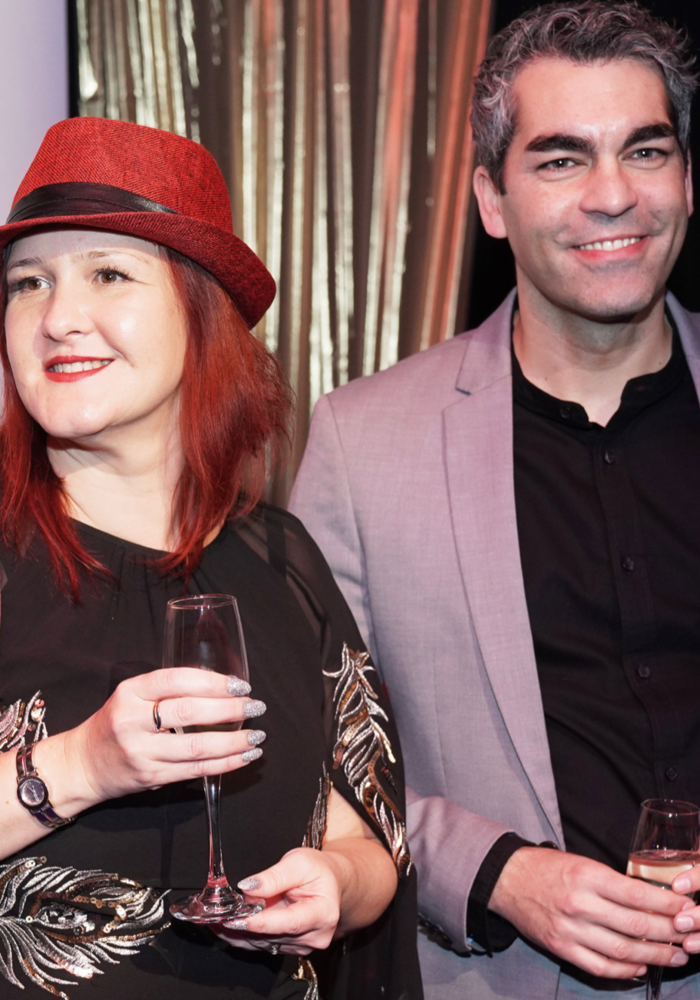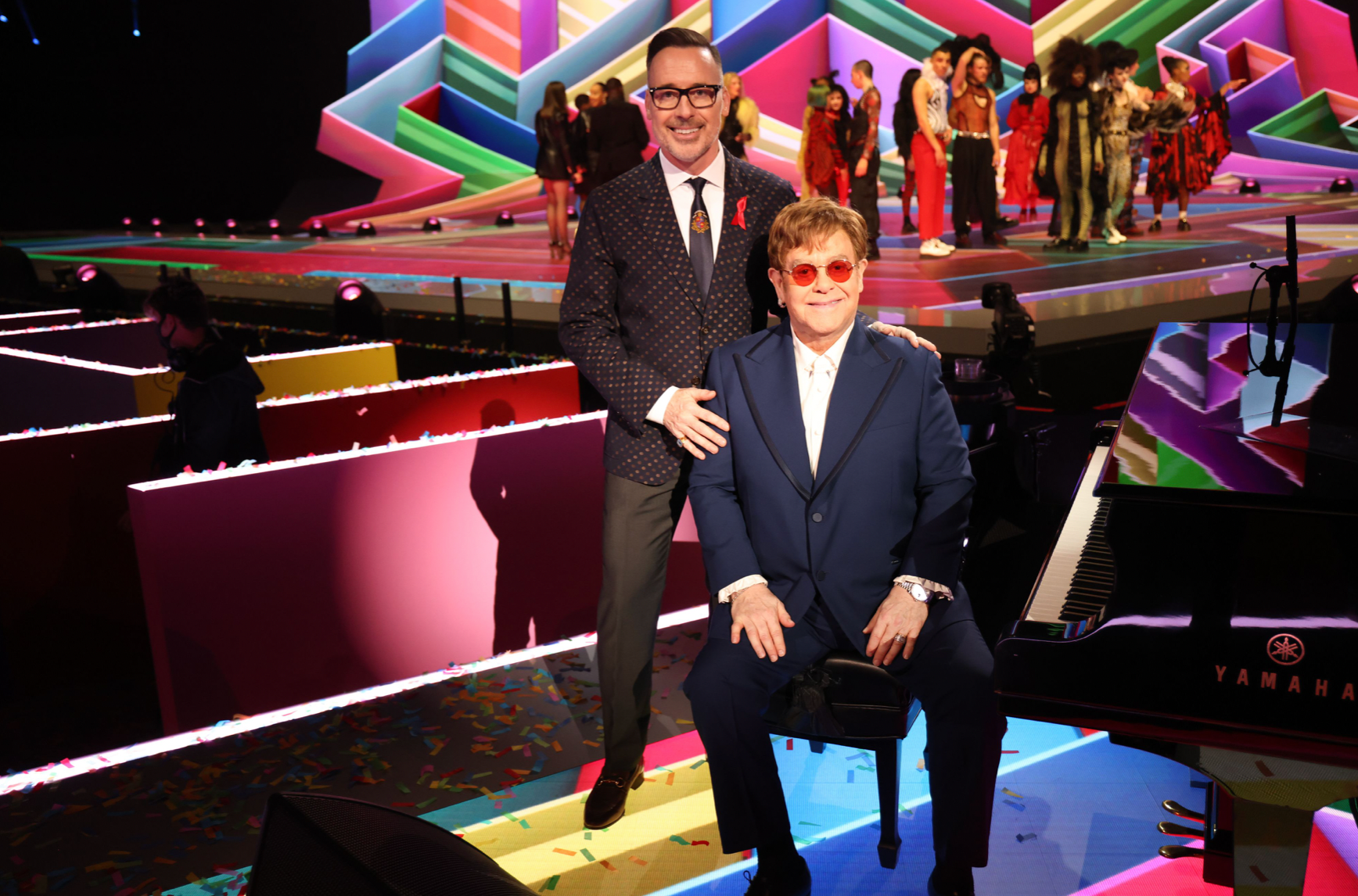Headliner has spoken to MMF (Music Managers Forum) CEO Annabella Coldrick and FAC (Featured Artists Coalition) CEO David Martin about the triumphant return of the Artist & Manager Awards, the “insurmountable barriers” Brexit is currently causing the industry, and how artists and managers have been coping with Covid.
On Thursday, November 18, the Artist & Manager Awards 2021 returned to London’s Bloomsbury Big Top as an in-person ceremony after last year’s all-digital affair.
Honouring the industry’s finest artists, managers and achievements, the ceremony saw Elton John and David Furnish receive the Artist & Manager Partnership Award in recognition of their work to support the sector, particularly new artists, as well as their campaigning for government to provide greater support for touring acts in light of Brexit.
Other award winners announced ahead of the ceremony included Little Simz (Artist of the Year), Amy Morgan (Manager of the Year), The Black Music Coalition (Industry Champions), Grace Ladoja MBE (Entrepreneur Award), Mogwai (Pioneer Award) and Karma Artists (Writer/Producer Manager Award).
Hosted by Capital FM's Roman Kemp, the evening also featured performances from Wes Nelson & Hardy Caprio, The Anchoress and Lucy McWilliams.
Commenting after the Awards, Coldrick, and Martin said: “Coming together again with friends and colleagues feels such a hugely positive and symbolic step forward. Tonight’s Awards was about celebrating music, talent, innovation and camaraderie across the artist and management community - whether that’s individuals at the start of their careers, survivors and legends, or those still standing after decades.”
Here, the pair speak to Headliner about the biggest challenges facing the artist and manager community, why the live industry is still nowhere near its pre-pandemic state and why this year’s Artist & Manager Awards was one for the ages…
It’s been a busy period for the MMF and FAC. How have things been for you both in the lead up to the awards?
AC: The awards are so exciting and such a big thing for both our organisations. We’re not for profit, so they are hugely important in so many ways and they really do celebrate our industry. So it’s a huge event that takes about four months of planning, but then all the other work doesn’t stop. There is the Select Committee inquiry, there’s lots of stuff we’re doing on the impact of Brexit on touring, there’s lots of exciting things happening but nothing else has slowed down!
DM: It felt like over the course of the pandemic all these things were brought to the forefront when people had a bit more time, but now things are starting to open up and that other stuff hasn’t stopped, so it’s a double whammy of work, but it’s all very exciting!
How did it feel to be back in-person with the awards?
DM: As organisations, and from the perspective of our members as artists and managers, it’s another stage in hopefully getting back to whatever normal is going to look like. It’s quite symbolic this year, and quite emotional to see all these people in a room.
AC: I was asked the other day, ‘How many of your members have gone under in the past two year’? Most of our members are very small businesses – whether artists or managers, many are set up as limited companies and they are also reliant on touring, so when that stopped we had a lot of people who lost all of their income.
But they kept working and it was really hard, and we found it hard because we were trying to support those people. And we were also trying to support each other; there was a real sense of community. Everyone was sharing knowledge from all over the world – lots of people were having to take out loans or apply for emergency funding. So, this is a celebration of the survival of all those businesses because none of them stopped!
How have managers fared during this time? There has been a big focus on the impact of Covid on touring, live events etc. but the story of managers during this time perhaps hasn’t received as much media attention. And has this period brought artists and managers even closer together?
AC: Yes, it has. There is that realisation that we’re all in it together. Some artists were great at talking about their crew and their teams, including live crew and management teams. Some management companies let some staff go, but the staff that went tended to also manage artists, so a lot of them kept working with their artists and supporting them.
We’ve had some great support from within the industry and from some of the larger managers. We launched something called The Rebuild Fund, because we acknowledged there were some amazing support schemes for artists but there was nothing for our membership who fell between the gaps.
We actually spent the first few months saying we shouldn’t have to launch something bespoke, but we did end up having to step in and we have some big managers who put money in, which was incredible, even though they themselves lost quite a bit.
The PPL helped out and Help Musicians helped administer it for us. The BRIT Trust also put some money in. It was still a drop in the ocean – we have 1,200 members and we helped about 88 businesses – but it was still good to be able to help those 88 get through it.
DM: There were well documented cases of artists being very altruistic to help the wider sector. Niall Horan did a huge streamed concert for crew; lots of artists supported production crew and their teams. The sector came together more than ever before – promoters who are dogged rivals were sharing advice, it was quite unprecedented. The whole sector realised it would need to work together to get through this.
With people’s day-to-day lives starting to resemble some kind of normality, with society largely opened up, is there a lack of understanding around just how far away the music industry remains from its pre-pandemic state?
DM: Yes, that was always going to be a risk and there is a long road back to recovery. Lots of businesses took on debt. Some people are still reluctant to be in venues, so we’re not back to full capacity. Then we have the joy of Brexit on top of all that. We’re not even back to full capacity on international touring, but as it is starting to open up we’re seeing the impact of those added barriers as well.




